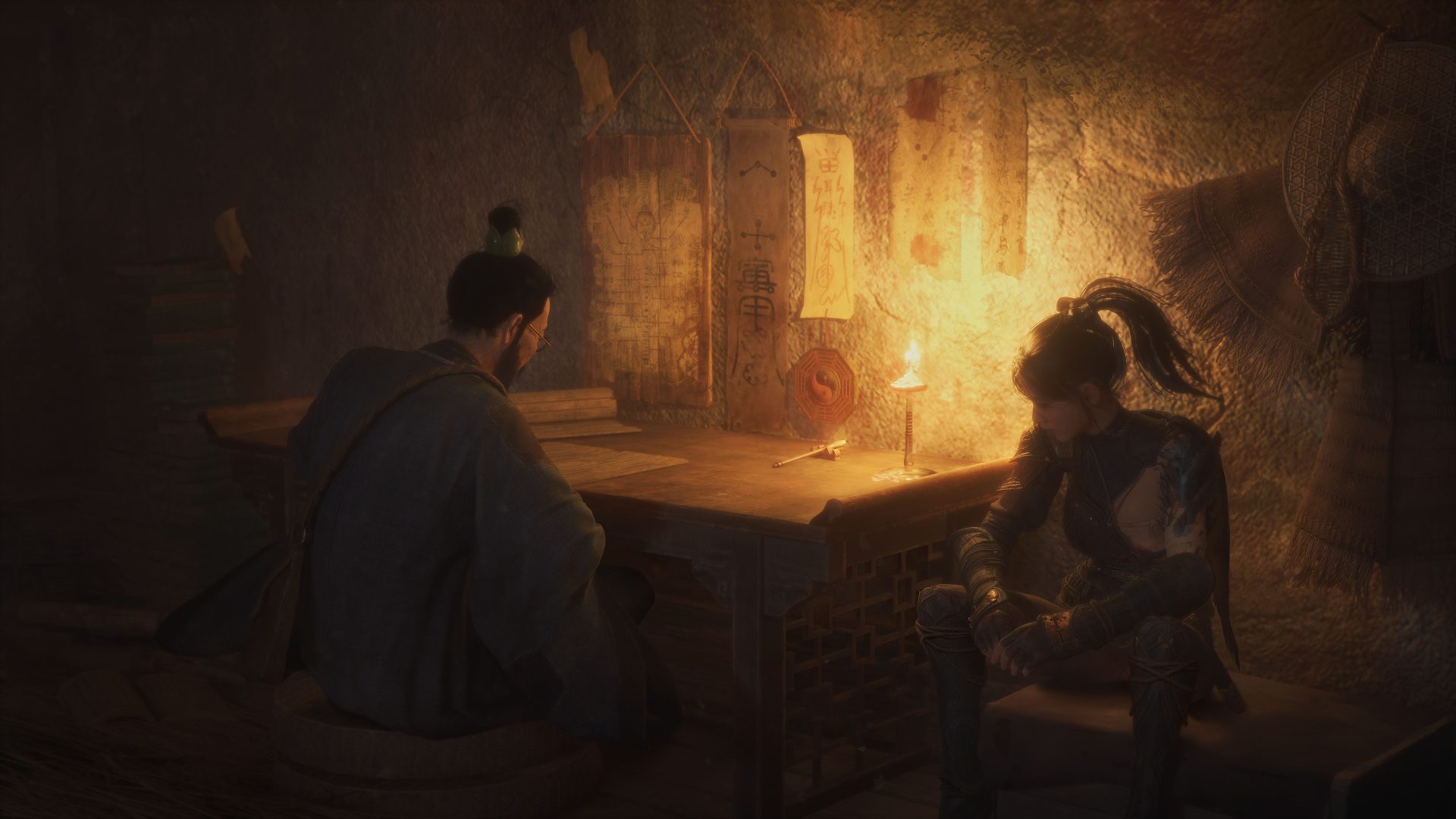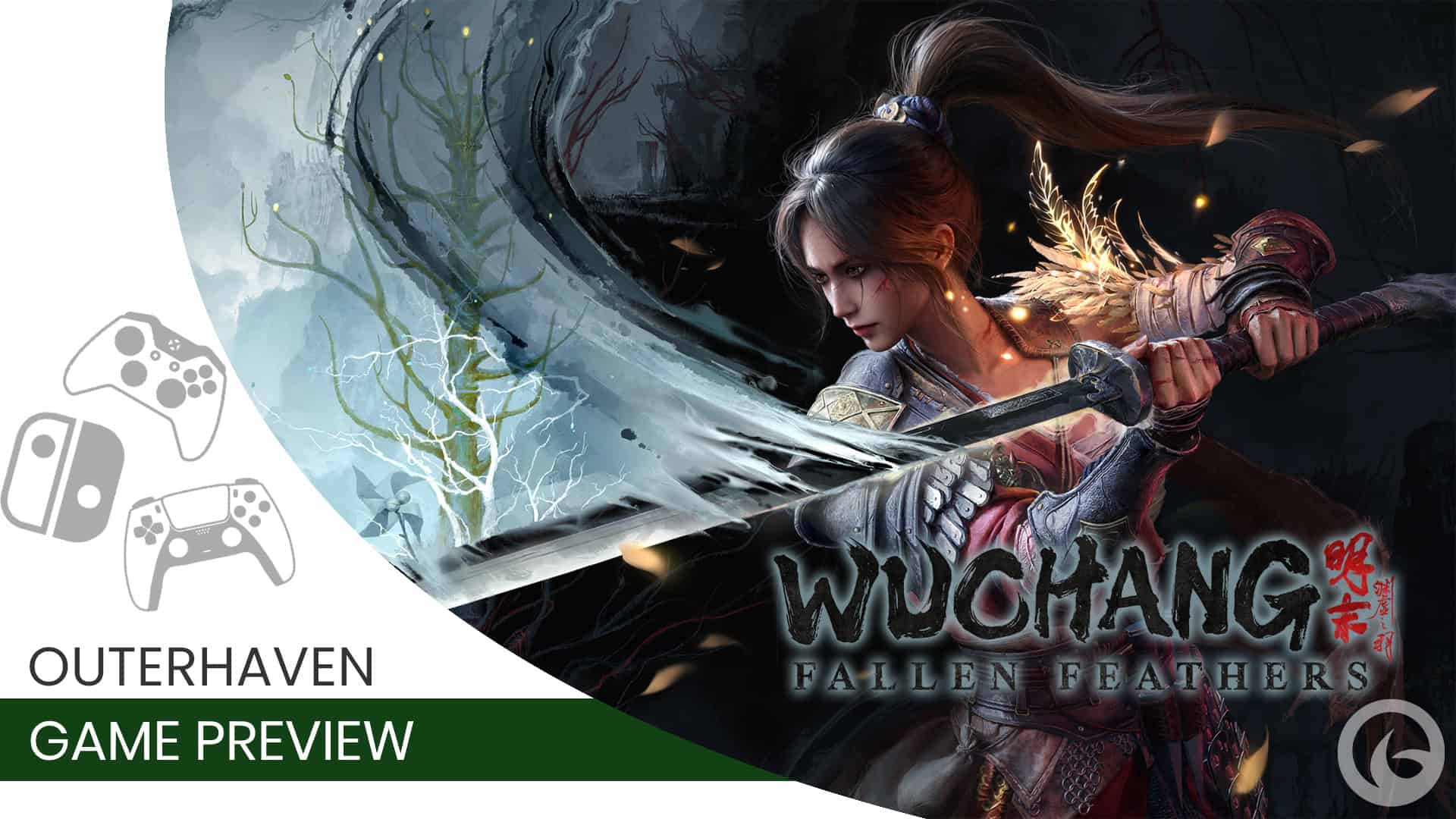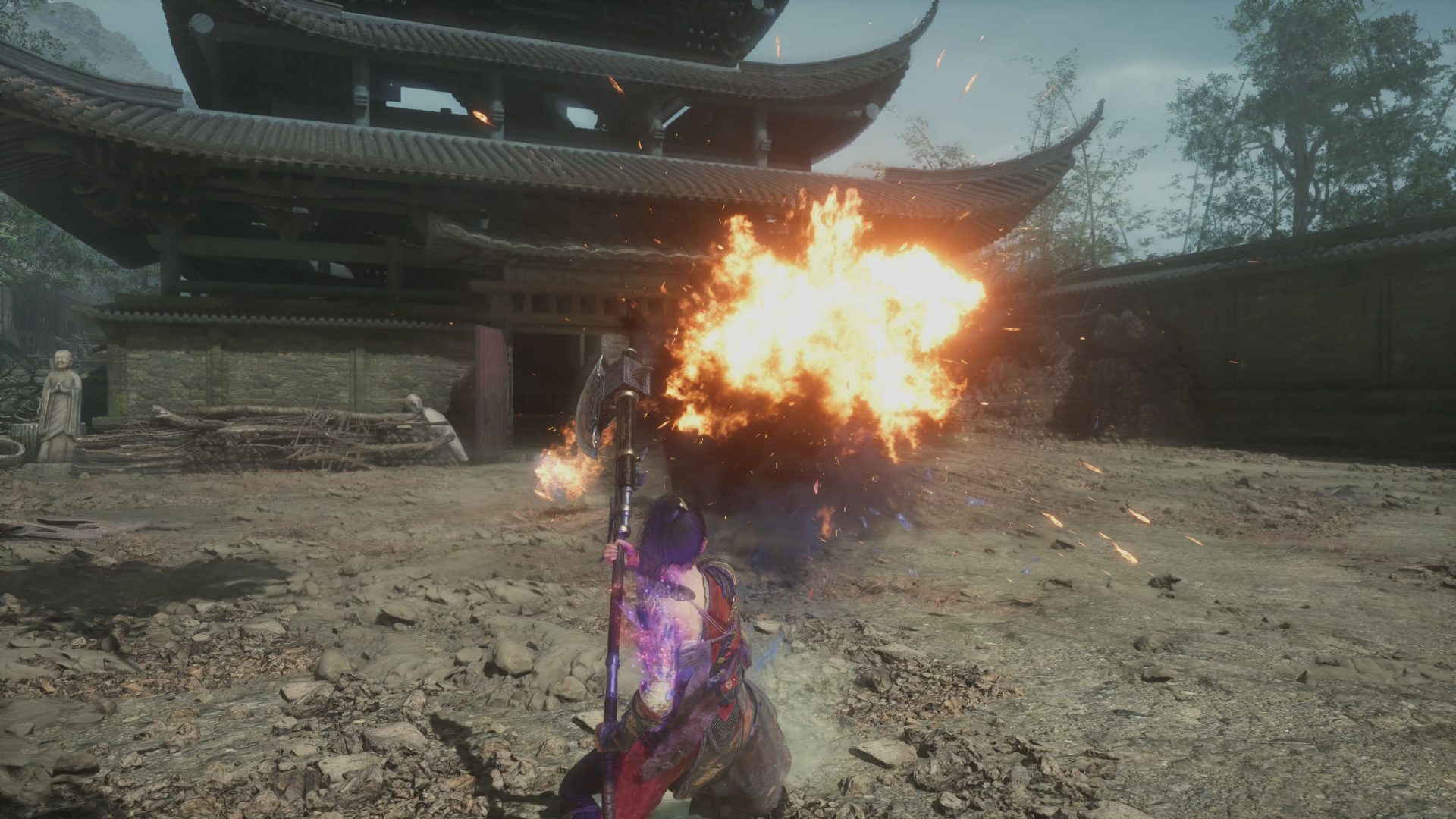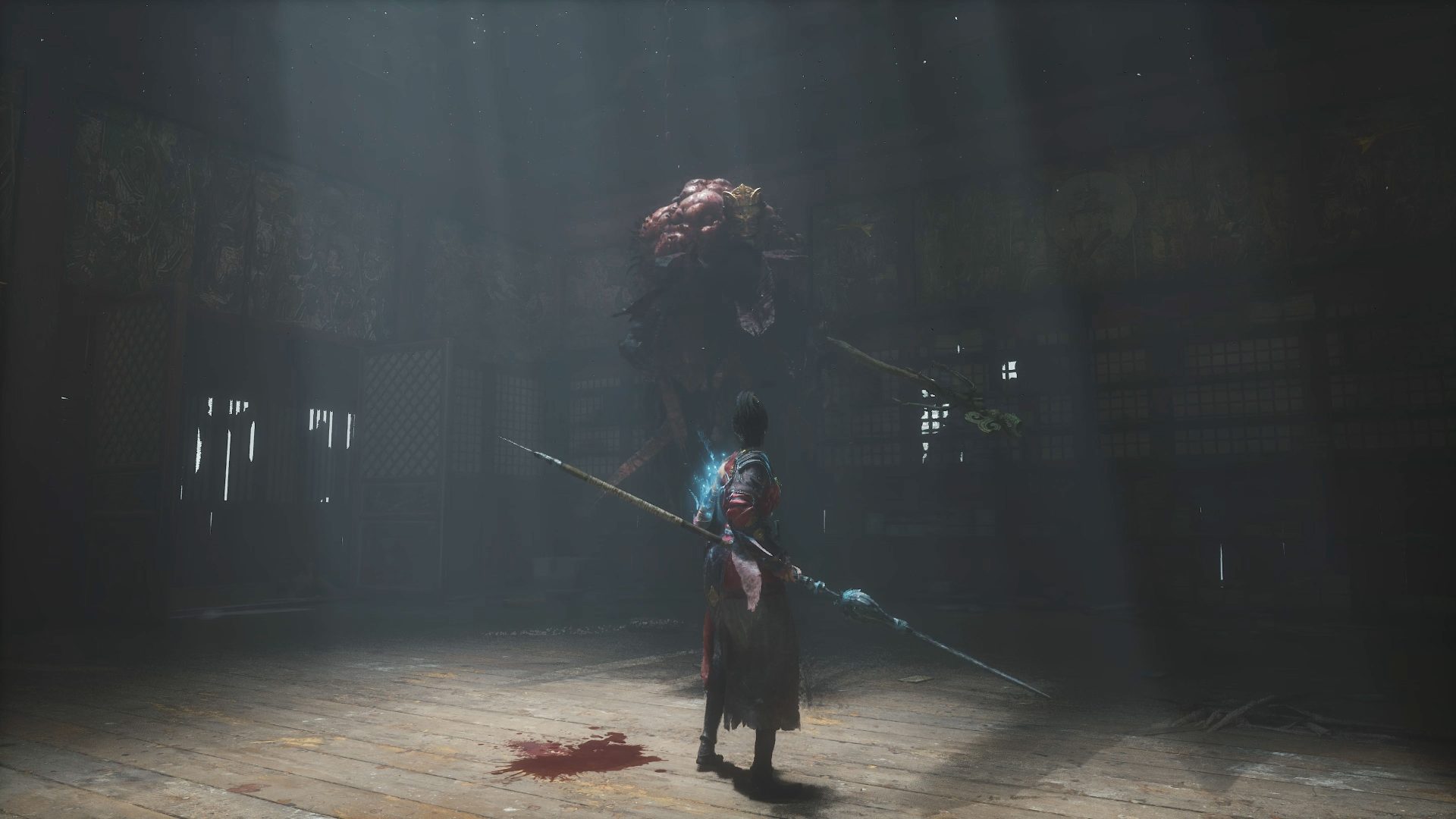Recently, I had the opportunity to go hands-on with WUCHANG: Fallen Feathers, an upcoming Action RPG/Soulslike title from developer Leenzee and publisher 505 Games. WUCHANG: Fallen Feathers isn’t just another Soulslike game. The goal here isn’t simply to copy FromSoftware’s homework, but to take inspiration from it and create something unique. After spending three unrestricted hours hands-on with WUCHANG: Fallen Feathers, I was left wondering, could this game compete with the likes of Sekiro and Elden Ring?
That isn’t a question that’s simple to answer, but what I will say is that WUCHANG: Fallen Feathers gave me the same sense of accomplishment and wonder that I felt with Elden Ring, something which the majority of Soulslike games have failed to do for me so far.

WUCHANG: Fallen Feathers is set during the Ming Dynasty
As someone who enjoys history, I’ve always found the 300 years of the Ming Dynasty to be very interesting. Of course, WUCHANG: Fallen Feathers isn’t historically accurate or anything like that, but it uses the late Ming Dynasty as a backdrop for the mystical alternate history story it aims to tell.
This is a unique time period for any game, and even more unique among Soulslike titles. Choosing the land of Shu during the late Ming Dynasty gives WUCHANG: Fallen Feathers an instant point of uniqueness, with the game having very different mythical and historical elements to play with than we’ve seen in a Soulslike before. These influences impact not only the game’s beautiful environments but also its enemy designs, weapon choices, and more.
Methodical Combat With Less Chaos
Compared to most other Soulslike games, WUCHANG: Fallen Feathers takes a less chaotic approach to combat. This is highlighted by the weapons, each of which has its own unique abilities that significantly impact how you play. Each weapon has two abilities, activated by either a bumper or trigger button. To use these special abilities, you must gain a resource, which you can do through a well-timed dodge. Some weapons let you jump into the air to avoid attacks, while others allow you to lunge forward for a quick, powerful strike.
This system does two things. First, it makes you constantly consider which weapon suits your current situation best. Second, it slows you down in combat, since you need good dodge timing to make the most of your abilities. This more methodical approach to combat is something I enjoyed. WUCHANG: Fallen Feathers, might actually have my favorite Soulslike combat system so far.
I do have one small issue with it, but after adjusting to the game over my play session, it was fine. The game locks you into attack animations, meaning if you attack at the wrong time, you won’t be able to dodge away. Initially, I found this to be very annoying, but as I played more, I understood what the game was trying to do. WUCHANG: Fallen Feathers wants you to slow down and think about your actions, really learning enemy patterns and choosing the perfect moment to strike.
All of this combines to give WUCHANG: Fallen Feathers a slower-paced combat experience compared to other Soulslikes. It won’t be for everyone, but it gave me a much deeper sense of accomplishment. Defeating a boss, or any enemy for that matter, never felt like luck.
An Interesting Approach To Death
We all know that in a Soulslike, dying is part of the experience, potentially causing you to lose whatever upgrade currency you currently have. WUCHANG: Fallen Feathers has these same mechanics, but it adds something else that makes death more interesting.
When you die, it awakens the madness, a mechanic that causes you to deal and receive more damage. It turns death into a strategic element. Sometimes you might *want* to die just to deal extra damage to a boss, but that’ll only work if you can avoid their attacks, which ties back into the importance of dodging that I discussed earlier.
Another interesting aspect of death in WUCHANG: Fallen Feathers is that when you die, you’ll sometimes need to fight a ghostly spirit version of yourself to retrieve your Red Mercury, the game’s version of “souls.” It doesn’t happen every time, but when it does, you’d better be ready. This ghostly version is called your “inner demon,” and it offers a challenge I haven’t seen before in a Soulslike. I was genuinely shocked the first time it happened, and yes, I died, because I wasn’t expecting it.
WUCHANG: Fallen Feathers Is Not An Open-World
Unlike FromSoftware’s Elden Ring, the game that really made me a fan of the genre, WUCHANG: Fallen Feathers is not an open-world game. Instead, the world is made up of interconnected areas, each of which feels large and packed with secrets to uncover. Connecting these areas is a central temple that acts like the Roundtable Hold of WUCHANG: Fallen Feathers.
This structure allows the game to feel vast without being immediately overwhelming. Sitting somewhere between the level-focused design of Demon’s Souls and the open world of Elden Ring is a tough balance to strike, but so far, it feels like WUCHANG: Fallen Feathers has nailed it. The game was so enjoyable to explore, I genuinely can’t wait to see what other secrets it’s hiding.
WUCHANG: Fallen Feathers Offers A Promising Twist
After my time with WUCHANG: Fallen Feathers, I was left with the instant feeling of wanting to play more. It’s more methodical combat and fresh twists on a familiar genre make it a very promising game that I can’t wait to dive deeper into. The bigger question is whether these tweaks to a well-known formula will pay off once we get our hands on the full game.
We don’t have long to wait to find out, WUCHANG: Fallen Feathers releases on PS5, Xbox Series X/S, and PC on July 24, 2025. It will also be available Day One on Xbox Game Pass.




